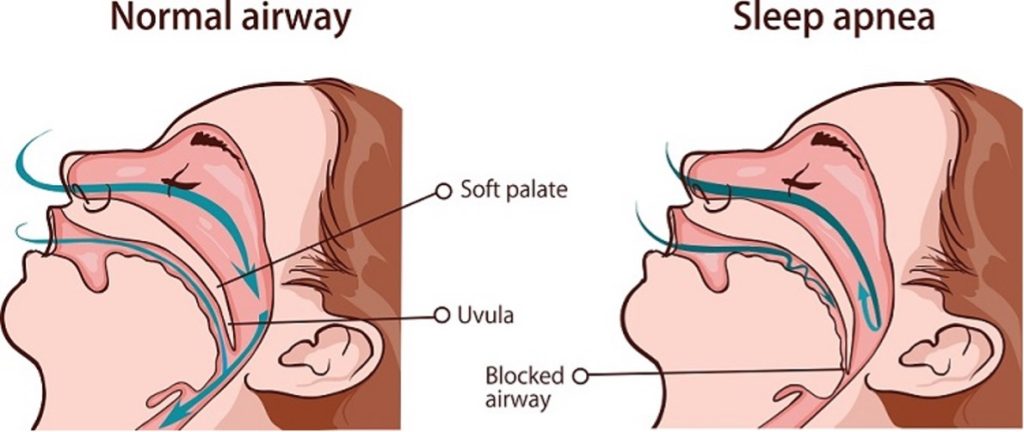The three types of sleep apnea are:
- Central Sleep Apnea, caused by miscommunication between the brain and the muscles of breathing
- Obstructive Sleep Apnea, caused by a blockage of the body’s natural airways
- Mixed Sleep Apnea, caused by a combination of airway obstruction and signal interruption
Of these, Obstructive Sleep Apnea (OSA) is the most common, impacting an estimated two to nine percent of adults in the United States. By comparison, Central Sleep Apnea (CSA) impacts only around .9 percent of adults.
Central Sleep Apnea
Central sleep apnea is often related to serious illness or neurological disorder. Patients with CSA will experience periods of breath cessation while sleeping and may wake with headaches, dry mouth/sore throat, and other discomforts. CSA can also be fatal, both as a direct cause and through related health problems.
Continuous positive airway pressure (CPAP) is among the most common ways to treat CSA. Additional treatments include:
- Adaptive servo-ventilation (ASV)
- Bilevel positive airway pressure (BPAP)
- Supplemental oxygen
CSA is not typically treated by a dentist.
Obstructive Sleep Apnea

Obstructive sleep apnea occurs when the soft tissue in the mouth and throat collapses, blocking the airways and causing disruptions in airflow. Like CSA, OSA is potentially fatal.
While it may be genetic, OSA is often a result of:
- Excess weight
- Marijuana and tobacco use
- Opioid use
- Excessive alcohol intake
- General inactivity
In many cases, treating OSA means changing habits. Quitting smoking can do wonders. So too can losing weight. Using drugs and alcohol responsibly can help as well.
Lifestyle changes are among the most effective treatments for OSA, but they are not enough to fully address the condition in every case. When extra help is needed, a sleep and snore device is often the best treatment option.
We offer the MicrO2 Sleep and Snore Device, a custom-made mandibular repositioning device designed to fit comfortably in your mouth. The soft but durable material used in these devices allows them to be smaller, improving comfort and allowing for greater tongue mobility while the device is being worn.
If you suspect you are suffering from OSA, the MicrO2 Sleep and Snore Device may exactly what you have been looking for. Call the Salt Lake City office of Warr Dental at (801) 355-5385 to schedule a consultation and learn more.





